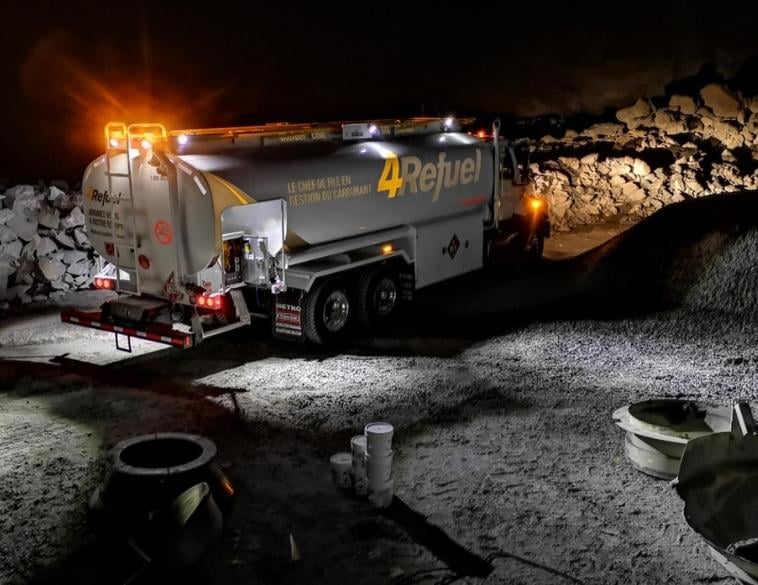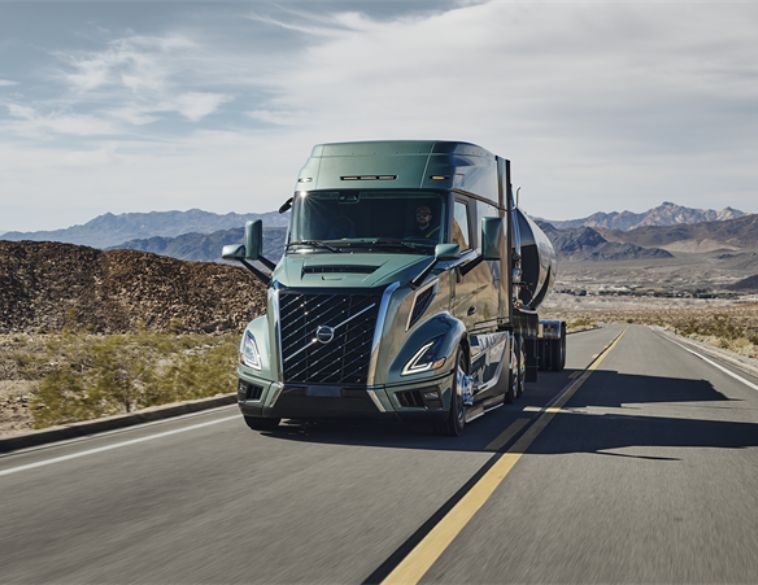If the soaring cost of gasoline and diesel has you in a panic, you’re not alone. Who could have imagined that we’d see $2/litre gasoline, or diesel going for $2.25 a litre and more?
This cost of fuel has some fleets looking at natural gas and propane as alternatives, which according to Joseph Korn, Consultant, Sustainability, Holman Market Development are cost-effective options.
Quoting U.S. fuel prices, Korn explains that diesel was going for over $5 a gallon in mid-April, while propane was less than $2/gallon and natural gas was just $1.65. “They’re a great solution,” Korn says of propane and natural gas, “not just for fuel savings, or life of vehicle savings, but on the emissions side as well.”
Korn admits that switching over to vehicles that run on alternative fuels is easier said than done in 2022, due to supply chain issues. That said, the best time to plant a tree, as the proverb goes, is ten years ago. The next best time: now.
“There’s still a business case for moving into alternative fuel,” he adds. “So if you’re thinking about it, even though you may not be able to get the vehicles today, working towards it makes sense.”
Coping with challenges
Kevin Tait, Fuel Specialist, Global Procurement, Holman says that although alternative fuels are a viable option, it can be a challenge for fleets to adopt them because of a lack of fuel stations. “A lot of the alternative fuel options aren’t supported to the degree they need to be at this point in time, to make it an incredibly attractive opportunity for some fleets,” he says of the situation here in Canada. “So it’s a little bit of a chicken and egg situation for now.”
That said, propane and natural gas vehicles don’t necessarily need to use public fuelling stations. Instead, Korn explains, they can be fuelled on-site, just as long as you’re managing the right kind of fleet. “Natural gas, is more of a class 7, 8 application,” he says, “and propane is more of a class 3-6 solution. These are depo-based vehicles, which means you’ll be buying a large volume of fuel, and suppliers will work to give you wholesale pricing.”
Retrofit solutions
If you’re thinking of retrofitting your existing vehicles to run on alternative fuel, Steven Jastrow, Vice President, Consulting and Analytics at Element Fleet Management says the process is easier said than done. Not only can the process be costly, but it’s also time-consuming.
“Getting your feet retrofitted takes a long time,” Jastrow explains, “because you can’t take your whole fleet in and have it retrofitted. You have to do it a handful of units at a time. What makes it a little bit more challenging is that there’s a lack of vehicles in the marketplace today due to the microchip shortage. So rentals, or ordering extra vehicles, is a bit of a challenge. That means you would have to figure out if you’re going to be able to take some of your vehicles off the road, and still maintain all the deliveries or service calls you’re doing today?”
In addition, retrofitting your entire fleet, without first assessing the benefits of doing so, could backfire in the long run. In short, these fuels may not be right for your fleet. That’s why a more calculated approach is recommended by fleet professionals.
“From a fleet sustainability practice, when you’re evaluating different types of assets within the fleet, the best route to go would be purchasing a new CNG unit so that you can compare it to your traditional diesel or gas model,” explains Ashley Hyland, Account Executive, Holman. “Run it through its life and then have a fair true cost of ownership to actually base your data on.”
One of the fleet managers who has already done the math counted the costs, and looked at the bigger environmental picture is Keith Lamb, Director of Fleet, 4Refuel.
“We’ve got a number of CNG trucks on order, and we anticipate in our 2023 builds, that we will significantly increase the amount of CNG-powered trucks coming to us,” explains Lamb. “We’re using Cummins engines in our trucks, we did extensive data calculations, and believe that from a total cost of ownership, excluding the cost of fuel, a CNG truck was probably a little bit cheaper to run than a diesel truck, given the initial cost of a CNG truck has about a $60,000 delta over a diesel truck.
“Over the life of that truck, that pretty much nets out to being close to the same from a calculated total cost of ownership. Then, what we gain significant value from is the reduced carbon credits when we can start to introduce renewable natural gas into the equation. We get significantly reduced carbon emissions, and we are very much conscious of the environment. We are working very hard to reduce our carbon output significantly over the next number of years, and find that a CNG truck was absolutely the best way to achieve that.”
James Ro, President of Comtech explains how renewable natural gas benefits fleets like 4Refuel. “There’s definitely a cost saving with CNG, give or take 30%. So when you consume a lot of fuel as a fleet, you can overcome that [cost] premium that Keith mentioned, and drive fuel cost savings into the business. But then, you get the benefits of renewable natural gas. So if you capture methane at a dairy farm, for example, clean it up to pipeline grade, and use it as a motor vehicle fuel, it’s considered carbon negative. Carbon credits are being introduced by governments to entice fuel switching, so it’s worth your while.”
While alternative fuels may not be the quick-fix solution to your current gasoline and diesel price challenges, they’re worth considering as you plan ahead and consider your options for future fleet purchases.



